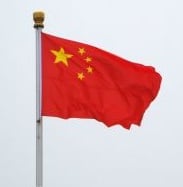A $774 million deal Hong Kong-listed Sino Biopharmaceutical planned to make buying a stake in a Chinese asset  management company was axed as markets around the world fell since the start of the year, especially in China. The deal was panned by investors from the start. They questioned the need for a pharmaceutical company to buy a stake in a bad-asset manager that took on nonperforming assets held by mainland banks. Sino's own shares fell 20% in January when it announced the deal and investors said then the acquisition "defied logic." Bloomberg reported this week that Sino still held a "positive view" on the value of the investment and would pay a $1.28 million termination fee. Sino said when it announced the deal that it would provide a "reasonable investment opportunity" for the company and would help generate "attractive returns" for shareholders, according to Bloomberg. Sino was also taken to task for not explaining the deal in detail. The company has also raised red flags with its corporate governance practices, including problems at subsidiaries accused of bribing doctors and the appointment of the 22-year-old daughter of the former chairman to replace him. Report
management company was axed as markets around the world fell since the start of the year, especially in China. The deal was panned by investors from the start. They questioned the need for a pharmaceutical company to buy a stake in a bad-asset manager that took on nonperforming assets held by mainland banks. Sino's own shares fell 20% in January when it announced the deal and investors said then the acquisition "defied logic." Bloomberg reported this week that Sino still held a "positive view" on the value of the investment and would pay a $1.28 million termination fee. Sino said when it announced the deal that it would provide a "reasonable investment opportunity" for the company and would help generate "attractive returns" for shareholders, according to Bloomberg. Sino was also taken to task for not explaining the deal in detail. The company has also raised red flags with its corporate governance practices, including problems at subsidiaries accused of bribing doctors and the appointment of the 22-year-old daughter of the former chairman to replace him. Report
> China's medicine industry hit a record high of $102 billion in 2015, a 4.7% increase over 2014 and is expected to rise at least 3-5% this year, according to official figures. Report
> A free trade zone used for pharmaceutical manufacturing in Shanghai is expanding and has become a "mainstay" in the Pudong area's economy. Report
> India has asked the U.S. government to clarify a possible change in the sourcing rules governing Active Pharmaceutical Ingredients (APIs) that could impact the nation's $15 billion drug industry. Report
> China-focused CAR-T player Cellular Biomedicine Group said it has raised $43.1 million by selling 2.3 million of its Nasdaq-listed shares at $19 each, a roughly 10% premium, to China's Wuhan Dangdai Science and Technology Industries Group, giving it a 19.4% stake. Release
> Malaysia's Health Ministry has refuted claims in called "irresponsible and unhealthy" that microcephaly is linked to vaccines instead of the Zika virus. Report
> The Medical Council of India has warned that doctors who take gifts and trips from foreign drug companies face censure to fines and a notice of a national online register any breach of rules. Report
> Hong Kong numbers respiratory syncytial virus and influenza A as the most common fatal types, according to researchers from the Chinese University of Hong Kong. Report
> China FDA has pledged to get a troubled track and trace system for drugs up and running after a pharmacy chain filed a lawsuit alleging a system under design favored a unit of online retailer Alibaba Group. Release (Chinese language)
> India's Maharashtra Food and Drug Administration has asked consumers to stop buying medicines online, citing a lack of paperwork and concerns of fake products. Report
> India patients with multi-drug resistant tuberculosis in government-run hospitals in four cities will get bedaquiline (Sirturo) in a controlled release, the Times of India said, citing Indian Council of Medical Research director general Sowmya Swaminathan. Report
> A unit of Shanghai-based Fosun Pharmaceutical Group has invested in Shanghai-based Phagelux which is working to develop alternative to antibiotics. Release
> New Delhi-based Biocon and its chairman say India should exempt all "life-saving drugs" from any kind of taxes or duties to help the country further its affordable healthcare goals. Report
> Tokyo-based Astellas Pharma said it has named James Robinson as president of its U.S. operations. Release
> New Delhi-based Strides Shasun said it has acquired majority control of Universal Corp. in Kenya and Generic Partners in Australia to beef up its businesses in those countries. Report
> India's move to exempt 74 drugs from duties could help in domestic production of bulk drugs but may also raise prices. Report